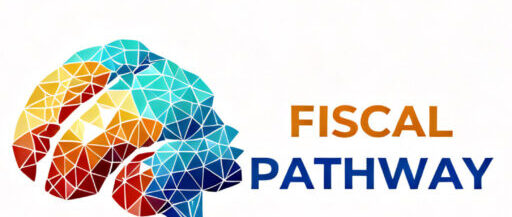It is more important than ever to improve financial literacy in today’s fast-paced financial world. Fintech is a growing field that combines elements of both finance and technology. As a result, people today have more resources than ever before to help them become better financial managers and experts with their own money.
The financial technology industry is reshaping the way people learn about and manage their money with tools like budgeting applications and investment strategy platforms. What this implies for customers in the modern day and how fintech is changing the game in this regard are discussed in this article.
Understanding Financial Literacy and Its Importance
Being financially literate means creating and sticking to a budget, investing wisely, and handling debt responsibly. It’s a crucial ability that impacts one’s ability to save money and plan for the future. Despite the significance of personal finance, many people have trouble understanding even the most fundamental ideas, which may lead to anxiety and bad choices.
People who are financially literate are better able to manage their money, save for the future, and escape debt traps. Classroom instruction and financial advising services are two examples of more conventional approaches to financial literacy, although they aren’t always effective at reaching all students or meeting their unique requirements. This is where financial technology (fintech) comes in, providing new ways to help more people understand money and how it works.
How Fintech is Revolutionizing Financial Literacy
1. Interactive and Personalized Learning Platforms
The days of tedious seminars and thick manuals were the norm when it came to financial literacy. Thanks to fintech’s interactive and personalized learning platforms, teaching people about money is now more interesting and relevant than ever before. You can find classes on anything from fundamental budgeting to complex investment techniques on apps like Investopedia Academy and Khan Academy.
The multimedia material, interactive quizzes, and real-life situations used by these platforms enhance the learning experience. Take Smart Asset as an example. They provide a tailored financial planning tool that lets users assess their current financial condition and make well-informed choices according to their own objectives.
In addition, financial platforms use data to tailor learning experiences to each individual. Education may have a direct effect on one’s financial well-being, and these platforms can help by recommending courses and resources based on user behavior and financial objectives.
2. Budgeting and Expense Tracking Apps
Knowing how to track one’s income and expenditures is a cornerstone of financial literacy. With the help of several applications and tools, fintech has made keeping track of expenses and budgeting much easier. You Need a Budget (YNAB) and Mint are two examples of apps with user-friendly interfaces that help people manage their money.
You can see your spending habits in real time and get practical advice on how to better manage your money using these tools. Take Mint, for example. It automatically sorts your costs into several categories and then uses that data to provide you personalized suggestions for saving and budgeting. Additionally, these applications add a gaming element to budgeting, which makes it more fun and less of a job. With the ability to establish objectives and monitor progress, users are encouraged to maintain control over their finances and make more prudent decisions.
3. Investment Education and Robo-Advisors
Although it’s essential for people to know how to manage their money, investing may be a scary prospect for those just starting out. Fintech has made investing education and management easier by providing platforms with automated investment services and information that are easy to grasp.
Betterment and Wealthfront are robo-advisors that employ algorithms and client choices to handle investments automatically. Users can find instructional information on these sites that explains various investing possibilities and techniques. One platform that lets users learn about investing and have their portfolios handled automatically is Betterment.
They offer materials for asset allocation, risk management, and retirement planning. In addition, investing apps such as Acorns and Robinhood provide users with instructional materials and tools to aid in the decision-making process. For example, Acorns makes investing easy and accessible for newcomers by collecting users’ leftover change from routine purchases and investing it.
4. Instruments for Goal Setting and Financial Planning
Achieving long-term financial objectives, like saving for retirement or purchasing a home, requires effective financial planning. Modern financial planning and goal-setting tools are available in fintech apps, simplifying the process for users to establish and monitor their financial objectives.
Sites like YNAB and Personal Capital give users access to all the tools they need to organize their finances and reach their objectives. A financial dashboard is available from Personal Capital that unifies budgeting, investment monitoring, and retirement planning. Users are able to establish objectives, monitor their development, and obtain tailored recommendations according to their financial status. With these resources, people can see clearly where they stand financially and how to go where they want to go, giving them the ability to shape their own financial destiny.
5. Behavioral Finance and Gamification
One effective fintech technique, gamification makes learning about money more engaging and enjoyable. Games are a great way for fintech applications to engage users and get them involved in their own financial education. As an example, Qapital incorporates gamification elements to facilitate user savings goals and the establishment of rules for automated transfers.
To make saving more fun, users may interact with the app through challenges and incentives. In a similar vein, Stash provides instructional information and incentives for understanding financial principles, gamifying the investing process. These systems also use behavioral finance insights to help users overcome typical psychological biases and make smarter financial decisions. Fintech applications can help users make better financial decisions by analyzing their behavior and motives and then providing personalized advice and support.
The Benefits of Fintech-Enhanced Financial Literacy
1. Greater Accessibility and Inclusivity
By utilizing technology, fintech platforms expand the reach of financial education to people who would not otherwise have access to it. There are no longer any economic or geographical constraints thanks to the widespread availability of mobile apps and web platforms. Underprivileged areas and those who may not have had prior access to financial education would greatly benefit from this enhanced accessibility. Improved financial literacy and user agency are two outcomes of fintech’s useful services and tools.
2. Improved Financial Decision-Making
Individuals can better manage their finances when personalized and interactive learning resources are available. Better money management and avoiding typical traps are possible when users have a firm grasp of the fundamentals of budgeting, investing, and financial planning. Users are able to adapt their financial strategy to their changing requirements and objectives with the help of fintech technologies that offer real-time data and feedback. Decisions are better informed and financial results are better as a result of this proactive financial management strategy.
3. Enhanced Engagement and Motivation
Financial education is made more interesting and inspiring by the gamified and interactive features of fintech platforms. Fintech applications motivate users to engage with their financial education and maintain their commitment to their financial objectives through the use of game-like elements and personalized suggestions. By actively participating, one is able to improve their financial habits and feel more in charge of their financial destiny. Interactive and inspiring tools increase the likelihood that users will engage in good financial behaviors and reach their objectives.
The Future of Fintech and Financial Literacy
1. Advanced AI and Personalization
Fintech and financial literacy are predicted to undergo significant advancements in artificial intelligence and personalization in the next years. Individuals will be able to get more advanced financial education based on their own needs and preferences through AI-powered platforms. Users will get access to more relevant and practical financial insights through personalized learning experiences and tailored assistance.
2. Integration with Emerging Technologies
New technology like blockchain and VR have the potential to significantly improve financial literacy. Financial transactions may be made more safe and transparent using blockchain technology, and students can learn about real-world financial problems through immersive virtual reality experiences.
3. Increased Focus on Financial Wellness
There will be a bigger push for complete financial health as fintech develops more. Not only will fintech platforms teach users how to manage their money, but they will also cover the psychological and emotional components of financial wellness.
4. Expansion of Financial Education Initiatives
Financial education programs will grow in response to the incorporation of fintech into financial literacy. More people will benefit from financial literacy programs and outreach initiatives if fintech businesses, schools, and NGOs work together.
Conclusion
Fintech is playing a pivotal role in enhancing financial literacy, offering innovative tools and resources that empower individuals to take control of their finances. Through interactive learning platforms, budgeting apps, investment education, and gamification, fintech is making financial education more accessible, engaging, and effective.
As fintech continues to advance, the future of financial literacy promises to be even more dynamic and inclusive. By embracing fintech innovations and staying informed about the latest developments, individuals can improve their financial knowledge and achieve greater financial well-being.
In a world where financial decisions are increasingly complex, fintech provides a pathway to empowered and informed financial management. Whether you’re a novice looking to learn the basics or an experienced investor seeking to refine your skills, fintech offers the tools and resources you need to succeed in today’s financial landscape.
FAQs on the Importance of Finance
Is finance important in life?
Yes, finance is crucial as it helps individuals manage resources, plan for the future, and achieve personal goals. Understanding finance enables informed decisions about budgeting, saving, and investing, essential for stability and success.
Why do people choose finance?
A career in finance is attractive because of the great income potential, constant change, and opportunity to assist others in reaching their financial objectives. It also caters to a wide range of interests with its many career routes, which include investment banking and personal financial advice.
What are the 5 principles of financial literacy?
The five principles of financial literacy are:
- Budgeting
- Saving
- Investing
- Debt Management
- Financial Planning




